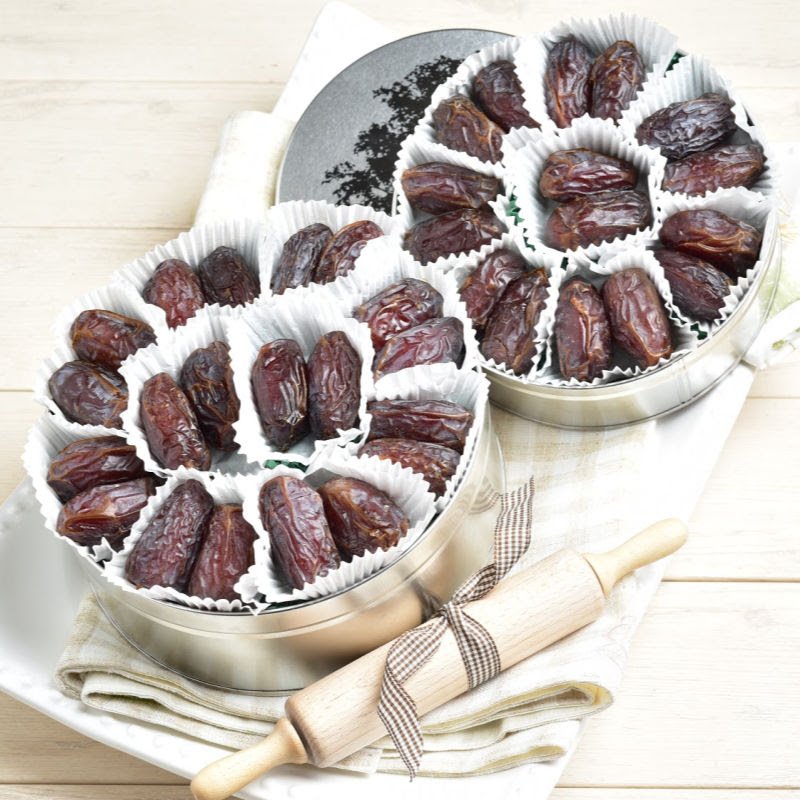
Pembekal Kurma :Impact of Weather Conditions
Introduction: Pembekal Kurma
Kurma, or dates, are a popular and nutritious fruit that has been consumed for centuries in various cultures around the world. In Malaysia, dates hold a special place in the culinary and religious traditions of the Malay community. They are not only enjoyed as a delicious snack but also play a significant role during the holy month of Ramadan and other festive occasions. To meet the growing demand for dates in Malaysia, numerous suppliers, known as “pembekal kurma,” have emerged to provide a wide range of date varieties to consumers. These suppliers play a crucial role in ensuring the availability of high-quality dates throughout the year, sourced from different parts of the world.
In this article, we will delve into the world of pembekal kurma, exploring their importance in the Malaysian market, the variety of dates they offer, and the factors to consider when choosing a reliable supplier.
Date production in Malaysia is an important agricultural sector contributing to the country’s economy and providing employment opportunities for many farmers. However, the date crop is highly susceptible to weather conditions such as drought or excessive rainfall. In this blog post, we will explore the impact of these weather conditions on the date crop in Malaysia and how it affects the local industry.
Understanding the Date Crop in Malaysia
Malaysia has a favorable climate for date cultivation, particularly in the northern states of Perlis, Kedah, and Kelantan. The date palm tree, scientifically known as Phoenix dactylifera, thrives in warm and arid regions, making these areas suitable for its growth. The date crop in Malaysia predominantly consists of the varieties known as Kurma Ajwa, Kurma Medjool, and Kurma Safawi.
The date palm tree requires a specific set of conditions to thrive, including well-drained soil, plenty of sunlight, and a moderate amount of water. While it can tolerate hot and dry climates, it is also vulnerable to extreme weather events such as drought and excessive rainfall.
Impact of Drought on the Date Crop
Drought, characterized by prolonged periods of low rainfall, poses a significant threat to the date crop in Malaysia. Date palm trees require a moderate amount of water to grow and produce high-quality fruit. During extended dry spells, the lack of water availability can result in reduced fruit yield, smaller-sized fruits, and poor fruit quality.
Drought conditions also make the date palm trees more susceptible to diseases and pest infestations. The weakened trees become more vulnerable to attacks from pests such as red palm weevils and mites, which can further damage the crop. Additionally, the lack of water affects the overall health and vitality of the trees, making them more prone to other diseases and infections.
Impact of Excessive Rainfall on the Date Crop
While drought poses challenges to date cultivation, excessive rainfall can also have detrimental effects on the crop. Date palm trees are adapted to arid conditions and do not tolerate waterlogged soil well. Excessive rainfall can lead to waterlogging, which inhibits root growth and reduces the tree’s ability to absorb nutrients from the soil.
Waterlogged soil also creates an ideal environment for the growth of fungi and other pathogens, leading to root rot and other diseases. The standing water can suffocate the roots and cause them to decay, ultimately resulting in the death of the tree. Additionally, heavy rainfall can cause physical damage to the fruits, making them more susceptible to spoilage and reducing their market value.
Adaptation and Mitigation Strategies
To mitigate the impact of drought and excessive rainfall on the date crop, farmers and researchers in Malaysia have been implementing various strategies:
1. Irrigation Techniques
Efficient irrigation systems, such as drip irrigation, are being employed to ensure that the date palm trees receive an adequate water supply even during dry periods. This helps maintain optimal soil moisture levels and promotes healthy tree growth and fruit development.
2. Soil Management
Improving soil drainage through appropriate land preparation techniques, such as contouring and terracing, helps prevent waterlogging and root rot. Proper soil management practices also involve regular soil testing and nutrient supplementation to ensure optimal growing conditions for the date palm trees.
3. Pest and Disease Control
Integrated pest management (IPM) strategies are being implemented to control pests and diseases effectively. This approach includes the use of natural predators, biological control agents, and targeted pesticide applications to minimize the impact on the environment while protecting the date crop.
Conclusion
Weather conditions, such as drought and excessive rainfall, significantly impact the date crop in Malaysia. Drought reduces fruit yield and quality while making the trees more susceptible to pests and diseases. On the other hand, excessive rainfall leads to waterlogging, root rot, and physical damage to the fruits. However, through the implementation of adaptation and mitigation strategies such as efficient irrigation techniques, soil management practices, and pest and disease control measures, farmers in Malaysia are working to overcome these challenges and ensure the sustainability of the date crop. By addressing the adverse effects of weather conditions, the Malaysian date industry can continue to thrive and contribute to the country’s agricultural and economic growth.
Key Highlights
- Date production in Malaysia is susceptible to weather conditions such as drought and excessive rainfall.
- Drought leads to reduced fruit yield, poor fruit quality, and increased vulnerability to pests and diseases.
- Excessive rainfall causes waterlogging, root rot, fruit spoilage, and physical damage.
- Adaptation and mitigation strategies include efficient irrigation, soil management, and pest and disease control.
- Efforts are being made to ensure the sustainability of the date crop in Malaysia.
By implementing these strategies, farmers in Malaysia are working towards maintaining a stable date crop despite challenging weather conditions. With proper management and continuous research, the date industry in Malaysia can thrive and contribute to the country’s agricultural and economic development.